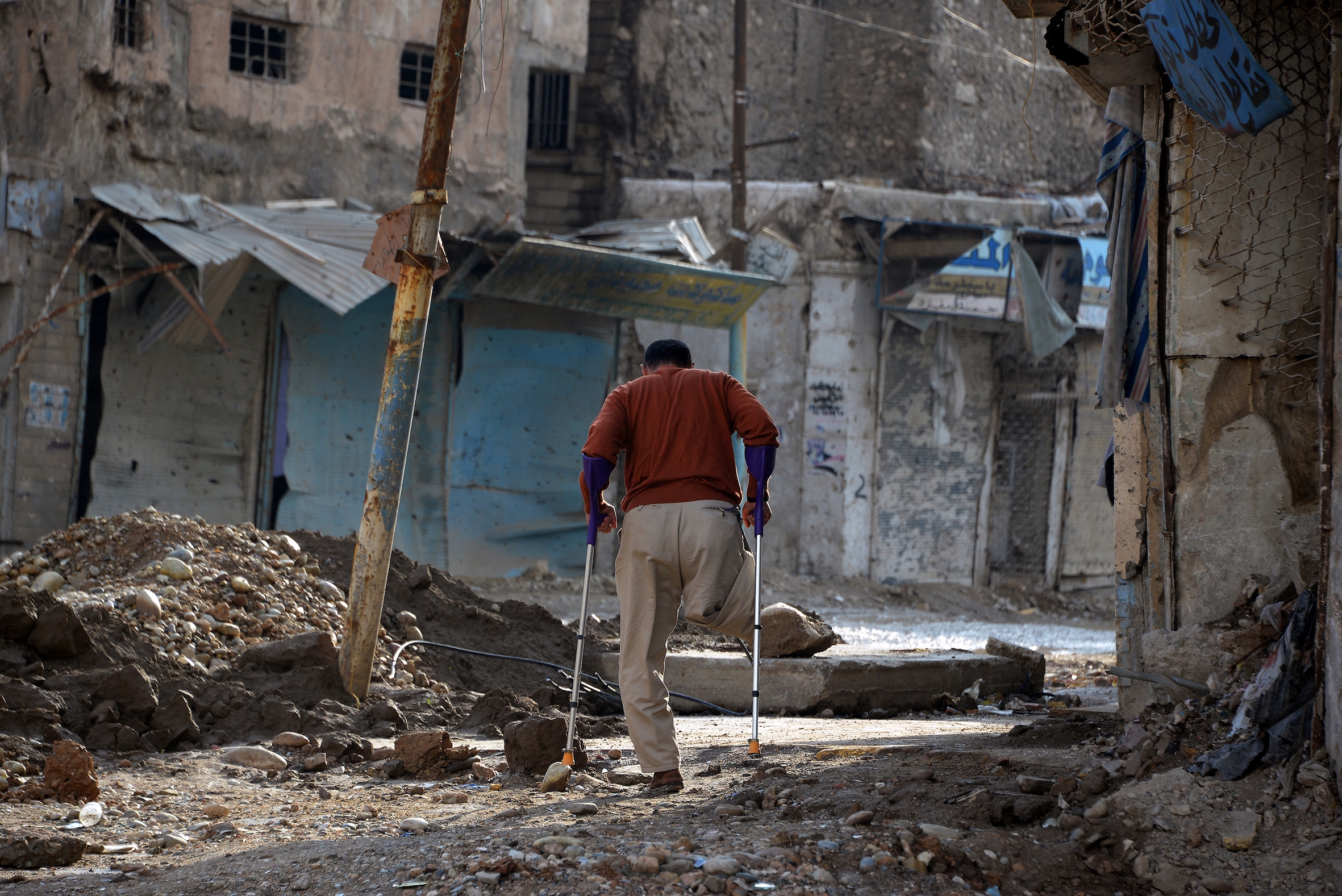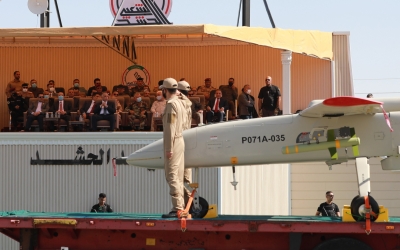Iraq elections: Hundreds of thousands of people with disabilities deprived of vote

The inaccessibility of Iraq’s electoral system is depriving hundreds of thousands of disabled citizens of their right to vote, Human Rights Watch (HRW) said on Thursday.
With parliamentary elections just around the corner on 10 October, the US-based organisation raised the question in a new report on whether the country is doing enough to ensure that it is not disenfranchising a large portion of its voters.
Iraq has one of the world’s largest populations of people with disabilities, according to the United Nations committee on the rights of persons with disabilities. This is partly as a result of decades of violence and war.
However, with “discriminatory legislation and inaccessible polling places”, the majority of Iraq’s disabled population will not be able to vote, HRW said in its 36-page report, highlighting the ways in which the country’s electoral system disenfranchises those most vulnerable.
Iraq’s election commission mostly opts for school buildings as polling stations - but with ballot boxes often placed on the second floor of these buildings, many are inaccessible to those with physical disabilities, HRW wrote.
The report also explains that “electoral materials are not presented in accessible formats such as audio, Braille, large print, sign language".
"Videos on the website are not accessible for people with hearing and visual disabilities,” it added.
Further, the country’s ban on operating vehicles on election day - a rule imposed for security reasons over the risk of car bombs - means those relying on wheelchairs, crutches, or mobility scooters struggle to get to polling stations.
'I am stuck at home'
This is all exacerbated by the fact that Iraq does not have mobile voting stations, electronic voting, or postal voting.
HRW spoke to a number of disabled Iraqis who feel discriminated against by the country's polling system, including Suha Ameen Khalil, 44, from Iraq’s Anbar province, who uses a wheelchair due to a physical disability.
'Every election day is the most depressing day for me'
- Suha Khalil, disabled Iraqi
“Every election day is the most depressing day for me. Everyone goes to vote and I am stuck at home waiting for the day to end. I want to vote like everyone else and choose people who can represent us because they know of our suffering,” she said.
With many of those with a disability unable to cast their vote, the political space fails to reflect and represent Iraqi society, HRW wrote. The organisation found that only eight people with disabilities have run for public office since 2005 - all of them men.
Belkis Wille, senior crisis and conflict researcher at HRW, urged international donors who are financially supporting Iraq’s elections to “ensure that they help make Iraq more accessible for people with disabilities, including its political system”.
With its findings, the rights group concluded that suitable transportation should be made available to those who need help getting to polling stations.
The commission should also “ensure that its election information materials are accessible and easy to understand for persons with intellectual, visual, and hearing disabilities”.
Finally, assistance should be readily available to those in need of it, and that such assistance should “not interfere with the right to cast a private and independent vote.”
Middle East Eye delivers independent and unrivalled coverage and analysis of the Middle East, North Africa and beyond. To learn more about republishing this content and the associated fees, please fill out this form. More about MEE can be found here.





